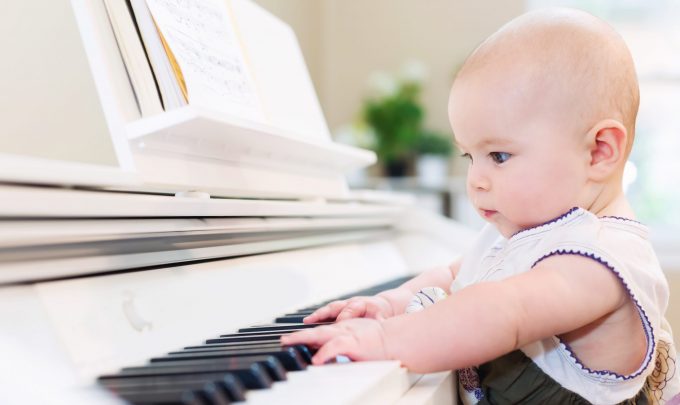
BABIES as young as six months are undergoing specialist education as parents realise the benefits of “educational play”.
Childhood educator Shiaoling Lim says parents are driving big demand for educational centers the cater to children before they can even speak.
“In the past two years enrolments at Shichida Early Learning Centres have doubled to over 2,200 across five centres, including a new centre at Parramatta in Sydney’s west with nearly 200 children already enrolled,” said Founder Shiaoling Lim.
“Parents want to do more than just read to their child, they want to know how to teach them to learn – like the phrase don’t feed them fish, teach your child to fish.”
“Mums and dads are more informed about the benefits of using everyday play together for learning – even in young children, who can read a clock by the age of 4 if exposed to time,” said Ms Lim.
“Early learning and stimulation should start from six months of age as studies show brain development for a child is at its most crucial stage up until six years, with 80 percent of the brain developed by the age of three.”
“The Shichida method of education taps into the subconscious mind of babies in fast paced 50-minute lessons using songs and activities that appeal to visual, auditory, sensorial senses to learn about numbers, measurements, quantities, time and sequencing which create a strong foundation for speed reading, mental maths and a fun attitude to learning.”
“It also guides parents on age appropriate learning in the home, like adding or subtracting countable food on two plates to make an equation; or using a Target or Kmart catalogue that comes in the mail to find particular letters and circling all the vowels on the page for children who aren’t at school yet.”
“After watching a movie like Frozen a parent can ask their child what letter the name Olaf starts with or Elsa, turning it into a fun educational game.”
“If parents talk in time, like it is 7 o’clock when we go to bed; or lunch is at 1 o’clock children will know o’clock and half past by the age of four and quarter to and quarter past by the time they start kindergarten.”
“Children not exposed to time might be eight years old before they start to grasp the concept.”
There are some 44,000 children taught by the Shichida method, with over 490 centres around the world and already some Australian parents are seeing results with their children gaining school scholarships.
“It’s not about creating geniuses it’s about getting children to love learning and if they do they will do well in school and into the future.”
Tips for Educational Learning in the Home
- Using catalogue mail ask children to circle particular letters, vowels or words. Do the first few together to help them understand how to play the game.
- In the sandpit make as many sandcastles together and start counting them one by one, then in twos. Use the buckets to learn measurements – full and half full.
- Make walking up steps a numbers game counting each step aloud as you walk on them.
- When doing something talk in time – it’s one o’clock it’s lunchtime. It’s 7 o’clock and bed time.
- Play a relating imaging game in daily, for example have a child recall a character they saw on a TV commercial or what colour top was the bus driver wearing?
- Put 5-10 items on a table, show it to your child for a few seconds, have them close their eyes while you remove one object and ask them to tell you which one is missing.
About Shiaoling Lim
Ms Lim owns the Shichida Education centres in NSW and Vic which run whole brain stimulation training programs for children from six months to nine years old.







